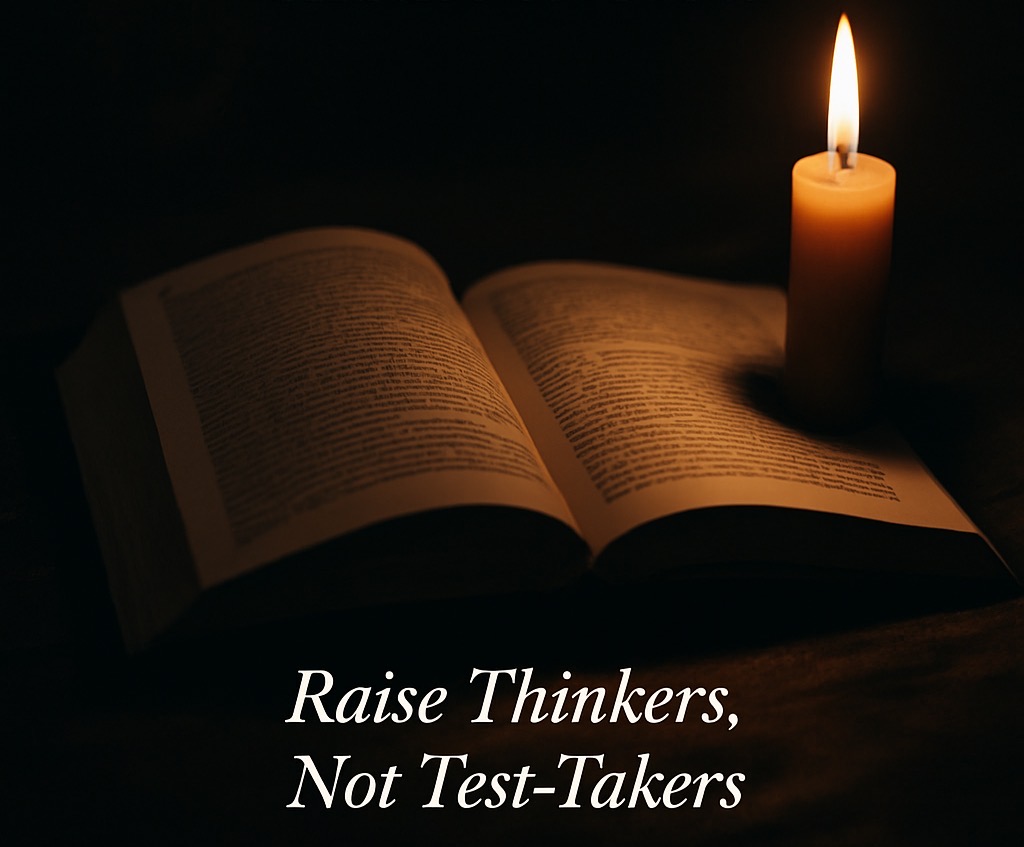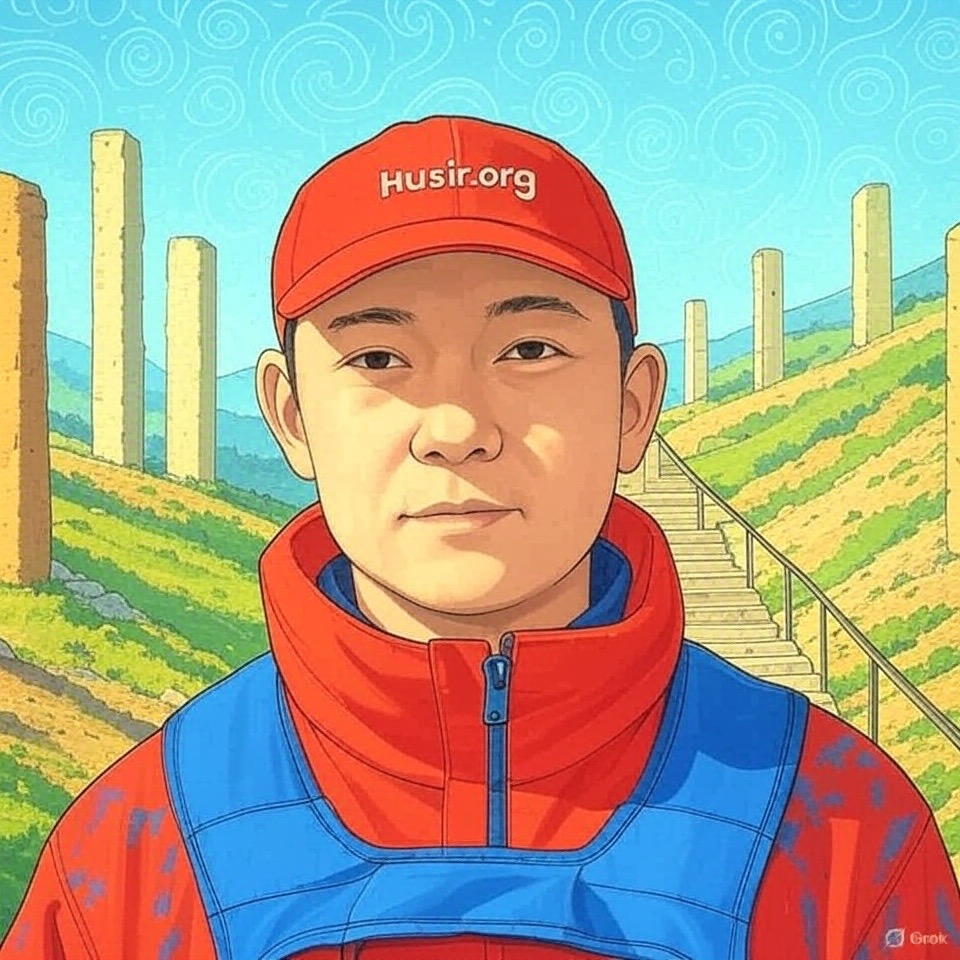—–培养思考者,而不是应试者。
文/HuSir
一位在苏州任教八年的德国外教,离开时留下这样一句感慨:中国教育是把最珍贵的年华,付给毫无意义、毫无发展价值的学习内容上,舍不得花费一点时间讨论和思考。记忆成了学习的唯一方法,高压成了教育的唯一手段,保护成了成长的唯一措施。
无独有偶,上周我遇到了一个自己开汽车修理部的朋友,他孩子刚上初一,我随口问他,孩子放假了你可以轻松一点了吧?他说:唉,别提了,本来以为孩子上初中后我会负担轻一些,但假期还要上补习班,学费得要8000多元,不上吧,老师还不愿意。我这些天又得加紧给人家修车赚钱了,他苦笑道。
要我说,这种负成长的教育模式是对人性的一种摧残,是对人类的极大犯罪。这句话沉重,却并不过分。
1、一场关于记忆与思考的错位
在许多中国课堂上,学生们的学习方式归结为两个字:记忆。
课本是统一的模版,标准答案是教条。所有教育资源,所有老师的努力,所有家长的焦虑,都围绕着一个目标旋转——分数。思考被当作奢侈,质疑被视为叛逆。孩子们用整整十二年的时光,去掌握那些可能很快被时代淘汰的知识,却很少被引导去思考:
这个世界是怎么运转的?我是谁?我能成为什么?
结果是,背得滚瓜烂熟的孩子们,面对生活,却找不到解决问题的方法;拥有高分的他们,面对未来,却失去了方向感。
2、高压与保护的双重失衡
中式教育还有两个显著特征:高压与保护。
高压之下,学习变成了一场竞赛,休息、兴趣、好奇心,被排挤在生活之外。
保护之下,孩子们被裹挟在学校与家庭的温室中,远离社会、远离风险、远离真实的世界。这是一种诡异的安排:
学习最难的知识,躲避最简单的生活。
而真正的成长,恰恰是在面对问题、独立决策、承担后果的过程中发生的。
没有经历过自由与挑战的人,即便在分数上再出色,也只是空心的精英。
3、教育,为什么变成了这样?
中国教育的这种病态,并非一夜形成。
从科举制度到现代应试教育,从社会竞争压力到家长焦虑,这套系统像是一台巨大的机器,吞噬着一代又一代年轻人的青春与潜力。
- 家长害怕孩子落后,于是拼命逼迫。
- 学校害怕排名下滑,于是机械灌输。
- 学生害怕失败,于是习惯了顺从。
统治者似乎发现了“驭民”的技巧,教育系统沿袭了科举制度的精髓,以至于在这种畸形竞争中,没有人是真正的赢家。
不是知识本身过时,不是分数太低,而是——孩子们在最该自由探索的年纪,被迫放弃了思考,被训练成了服从。最可惜的是:
那些本可以发光的生命力,那些本可以飞翔的翅膀,被一点点剪断,被一点点耗尽。
4、如何改变:
这样的教育,表面上为孩子保驾护航,实际上却在剥夺他们本应拥有的思考能力与独立精神。对此,我们不能沉默,更不能袖手旁观。呼吁每一位父母,每一个仍心存良知的成年人:即便身处这样的环境,也请从小教导孩子批判性思维的方式。
告诉他们:世界不是只有标准答案,真理需要追问,规则值得反思。引导他们不盲从权威,不惧怕质疑,不满足于表面的安稳。从家长自身做起,学习和操练批判性思维的学习、处事方式。‘批判’不是批斗、压制,而是认真探究事物发展的来龙去脉和理性推导结果。
如果你没有条件离开这样的公立学校体系,那就请自己动手教育孩子,哪怕一点一滴地,培养他们独立思考的习惯;哪怕在无声的夜晚,在忙碌之余,也要和他们讨论问题的多种可能性,激励他们提出不一样的声音。自己则要以身作则,率先垂范,亲自给孩子示范批判性思维的生活和学习模式。
如果你有条件,请不要犹豫。把孩子送到更自由开放的私立学校,或者请真正理解教育本质的家教,帮助他们在成长的关键期养成健全的思想与人格。不要花了大把的钱,最终却让孩子失去了独立思考和人格光芒,成为被驯化的温室产物。
教育,不只是为了考试,不只是为了应付一纸文凭。教育,是为了让孩子成为真正自由、完整、光明的人。更重要的是,搭起一座‘批判性思维’与神带领之路的桥梁,让孩子学会在神的光照和引导中,活出自由而丰盛的人生。
未来,属于那些能独立思考的人,属于那些心灵自由、与神同行的人。

Offer Children a True Chance to Grow in a Flawed Education System
——-Raise Thinkers, Not Test-Takers
by HuSir
After eight years of teaching in Suzhou, a German teacher left behind this remark:
“Chinese education spends the most precious years of a child’s life on meaningless, developmentally hollow learning content, unwilling to allocate even a little time for discussion and critical thinking. Memorization becomes the only learning method, pressure the only means of education, and protection the only measure of growth.”
Coincidentally, just last week, I met a friend who runs an auto repair shop. His child had just started junior high. I casually asked him, “Now that your kid is on vacation, you must have it a bit easier, right?”
He sighed and said, “Don’t even mention it. I thought once he started junior high, things would ease up. But now he still has to attend cram school during the break — it costs over 8,000 yuan. If we skip it, the teacher isn’t happy. I have to work extra hours fixing cars to cover it.”
He smiled bitterly.
In my opinion, this model of negative growth in education is not just damaging to human nature — it is a crime against humanity.
This may sound heavy, but it is not an exaggeration.
1. A Misalignment Between Memorization and Thinking
In many Chinese classrooms, the learning method can be summed up in two words: rote memorization.
Textbooks are standardized templates; model answers are rigid dogmas. All educational resources, teachers’ efforts, and parents’ anxieties revolve around a single goal — test scores.
Thinking is treated as a luxury, questioning seen as rebellion.
Children spend twelve years mastering knowledge that may soon become obsolete, yet they are rarely guided to ask:
- How does the world work?
- Who am I?
- What can I become?
The result?
Children who can recite knowledge flawlessly are helpless when faced with real-life problems; students who achieve top grades are lost when it comes to envisioning their future.
2. The Dual Imbalance of Pressure and Protection
Chinese education is also marked by two significant features: pressure and protection.
Under pressure, learning turns into a relentless competition. Rest, hobbies, curiosity — all pushed aside.
Under protection, children are confined within the safe bubbles of schools and homes, cut off from society, risk, and the real world.
It’s a bizarre setup:
- Study the most complex knowledge,
- Avoid the simplest realities of life.
Yet true growth happens precisely in facing problems, making independent decisions, and bearing consequences.
Without experiencing freedom and challenges, even the highest-scoring students are nothing more than hollow elites.
3. Why Has Education Become Like This?
The pathology of Chinese education didn’t form overnight.
From the imperial examination system to the modern test-driven model, from societal pressure to parental anxiety, the entire system is a colossal machine consuming generations of youth and potential.
- Parents fear their children falling behind, so they push harder.
- Schools fear falling in rankings, so they intensify rote drills.
- Students fear failure, so they become accustomed to compliance.
It seems that those in power have discovered the “art of governance” — the educational system has inherited the essence of the imperial exam, ensuring that in this distorted competition, no one is a true winner.
The tragedy isn’t outdated knowledge or low scores, but this:
At the age when they should be exploring freely, children are forced to abandon independent thinking and trained into obedience.
The saddest part?
All that potential for brilliance, all those wings meant to fly, are systematically clipped and worn away.
4. How to Change This?
Such an education system may appear to safeguard children but in reality strips away their innate capacity for independent thought and spirit.
We must not stay silent.
We must not stand idly by.
I call on every parent and every adult who still harbors a conscience: even in such an environment, teach your children critical thinking from an early age.
Tell them:
- The world does not have only one set of standard answers.
- Truth needs to be questioned.
- Rules deserve to be reflected upon.
Guide them to resist blind obedience, not to fear questioning, and not to be content with superficial stability.
Start with yourself — learn and practice critical thinking in your own learning and decision-making.
‘Criticism’ is not about hostility or oppression — it’s about serious inquiry into the causes and logical processes of events.
If you cannot remove your children from the public school system, then teach them yourself, even if it’s bit by bit.
Foster the habit of independent thinking, even if only in the quiet of the night or the fleeting moments of busyness — discuss possibilities, encourage them to voice different opinions.
Lead by example: live a life that models critical thought.
If you have the means, don’t hesitate.
Send your children to more open and liberal private schools, or hire tutors who truly understand the essence of education.
Help your children build healthy minds and characters during their formative years.
Do not spend a fortune, only to have your children end up as tame products of a greenhouse — stripped of independent spirit and critical thinking.
Education is not merely for exams or diplomas.
Education is meant to mold children into truly free, whole, and luminous human beings.
More importantly, build a bridge that connects critical thinking with the path led by God, so that your children learn to live under His light and guidance — pursuing lives of freedom and purpose.
The future belongs to those who can think independently.
It belongs to those whose spirits are free and who walk with God.

发表回复